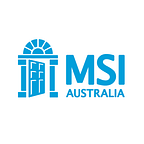Five key facts about abortion law reform in South Australia
South Australia is the only state or territory in Australia where abortion is criminalised. Yet, in the coming days and weeks, there is a chance to rectify this and bring South Australia in line with the rest of the country.
This week the lower house (House of Assembly) is discussing the Termination of Pregnancy Bill (the Bill). Here’s five key facts about existing abortion law and the proposed reforms.
Existing laws criminalise health access and healthcare
The South Australian criminal code currently criminalises people who:
- access abortion themselves
- supports someone else who chooses abortion, to access abortion care
- are qualified to provide abortion care, to provide abortion care.
It is widely accepted that access to healthcare is a human right. Abortion is healthcare. The criminalisation and subsequent restrictions on access to healthcare can have detrimental impacts on health and wellbeing.
Existing laws discriminate against patient autonomy
Medical abortion via telehealth is accessible in every jurisdiction of Australia, other than South Australia. Medical abortion, otherwise known as early medical abortion (EMA), is a safe and private method of abortion care which can be self-administered with telehealth support.
People in South Australia are not trusted to administer their own medication. South Australia requires the first dose of medication for medical abortion to be taken in a clinic. When it is legal, safe and supported by every other state and territory, it becomes questionable as to why South Australia discriminates against patient autonomy.
Existing laws contravene Australia’s international obligations
The United Nations Committee on Economic, Social and Cultural Rights and the Committee on the Elimination of Discrimination against Women (CEDAW) enshrine sexual and reproductive health within women’s right to health. As a signatory to CEDAW, Australia has agreed to respect, protect and fulfil sexual and reproductive health and rights.
Australia has a patchwork of health laws and health policies across federal, state, territory and local governments. The United Nations observations on Australia’s eighth periodic CEDAW report recommended that Australia harmonise abortion-related legislation across Australian jurisdictions to increase health access and equity. As long as South Australia keeps abortion in the criminal code, the legislation contravenes Australia’s international human rights commitments.
The Bill contravenes Australia’s international obligations
The Bill does decriminalise healthcare and will increase patient autonomy, however, it’s not perfect. The South Australian Law Reform Institute (SALRI) report provided comprehensive evidence as to how the Bill could harmonise abortion access with other jurisdictions. The Bill overlooked some key recommendations of the SALRI report, introducing unnecessary provisions including lower gestational limits.
To respect our international obligations, the Bill needs to align as closely as possible with recommendations from the SALRI report. In the coming days or weeks, politicians will have the opportunity to propose amendments. It is likely that the proposed amendments will be contrary to the SALRI report.
South Australia needs to pass the Bill in its current form
While proposed amendments to the Bill may intend to regulate the safety and quality of care, amendments could unintentionally further destabilise harmonisation efforts. Healthcare governance is best located within healthcare agencies, such as the Australian Commission on Safety and Quality in Care. This means that while the Bill is not perfect, it needs to be passed in its current form.
Access to abortion care in Australia is a postcode lottery. Until abortion law is harmonised, patients will continue to travel between jurisdictions in order to access healthcare and Australia’s human rights record will remain opaque.
The Bill is a move in the right direction and should be passed without harmful amendments. If or when it’s passed, there will still be much work to do to increase health access and equity people across metropolitan, regional and remote South Australia.
Bonney Corbin was born in Adelaide; in fact, it is her middle name.
Bonney’s parents chose to migrate to South Australia in the 1970s as it was seen to be a centre of the arts, creativity and progressive politics. She grew up in the studios of the Jam Factory, back when it was in the actual jam factory. Based on Kaurna and Peramangk country, she visited regional and remote areas across the state with various community organisations and arts collectives.
Bonney first spoke on Radio Adelaide at the age of 10, was invited to represent South Australia in Australian Parliament at 14 and won the Morialta (Coles) electorate award for community affairs at 15. She received a scholarship from the University of South Australia at 18, began working as a planner at the Adelaide City Council at 20 and won South Australian young planner of the year at 21.
Today, Bonney is the Head of Policy at Marie Stopes Australia. She is also Chair of the Australian Women’s Health Network, Vice Chair of Violence Prevention Australia, a board member of Genetic Alliance Australia and on the Australian Women Against Violence Alliance policy executive. Bonney is grateful for the lifelong mentoring, support and encouragement she has received from Elders, community leaders and everyday change makers across South Australia.
Want to get involved in South Australian abortion law reform? Follow the South Australian Abortion Action Coalition on Twitter, Facebook. Sign the Fair Agenda petition. Subscribe to the Human Rights Law Centre. Hold space for your friends and family to speak about abortion, because chances are a number of them have had one too.
